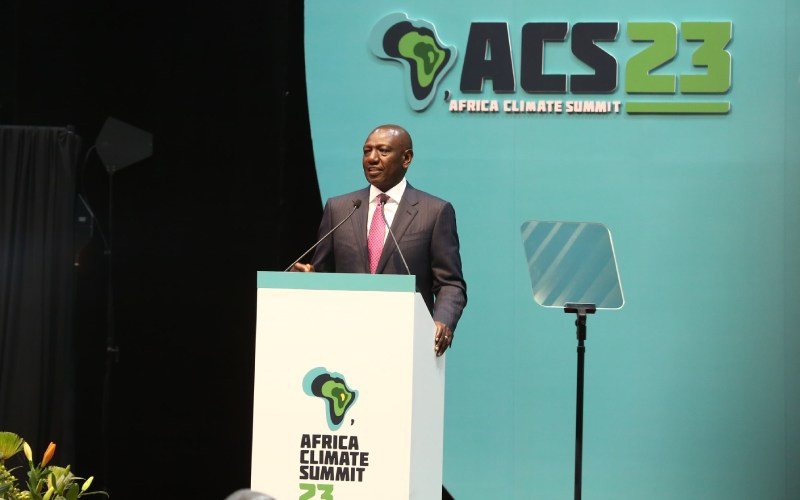×
The Standard e-Paper
Kenya’s Boldest Voice

President William Ruto has officially opened the first Africa Climate Summit (ACS) at the Kenyatta International Convention Centre (KICC).
The summit is scheduled to run from September 4 to September 6, 2023.